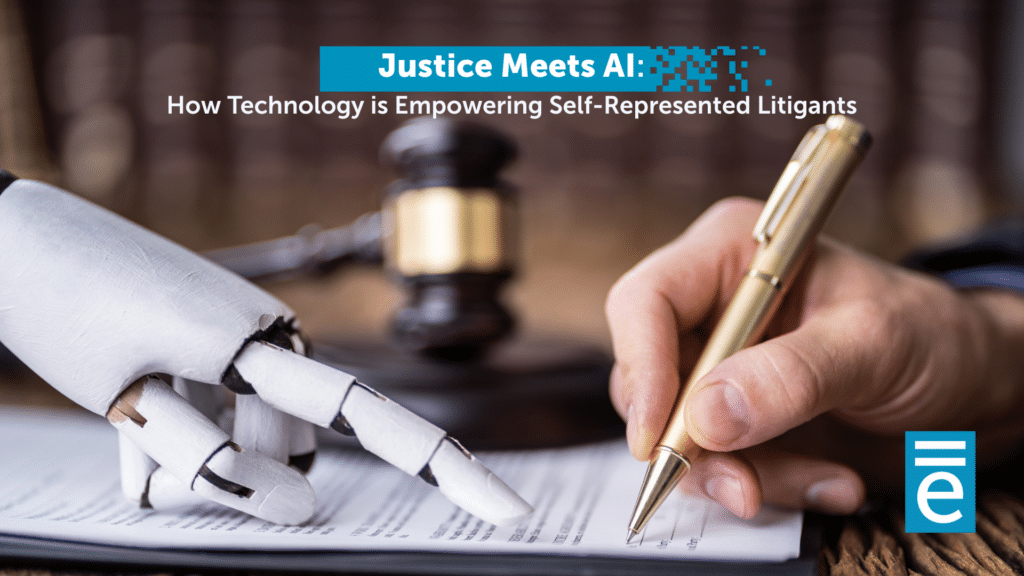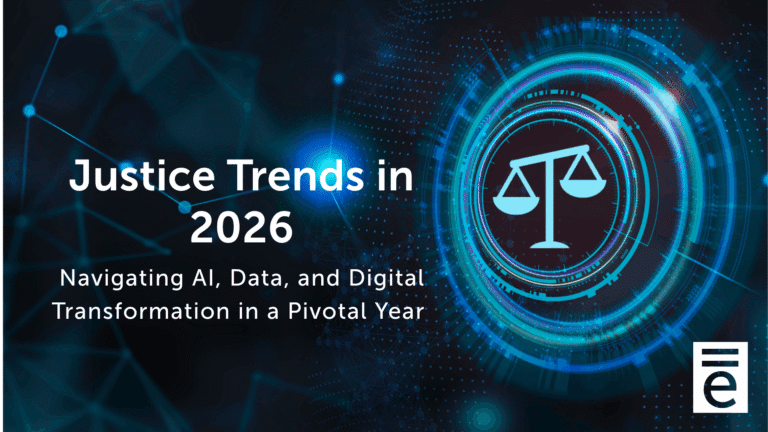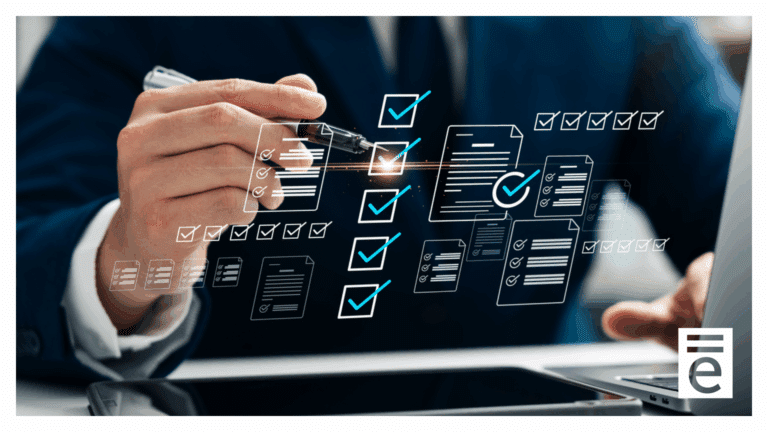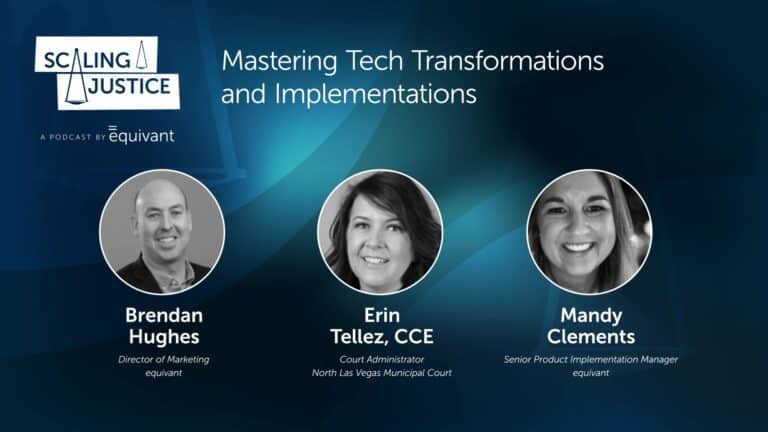In courtrooms across the country, a quiet revolution is underway. As legal systems wrestle with the rising number of individuals navigating the justice system without legal representation, artificial intelligence (AI) is emerging as a powerful ally. For self-represented litigants (SRLs), AI tools are beginning to bridge the access-to-justice gap and are offering guidance, clarity, and support where traditional resources fall short.
How AI is Supporting SRLs Today
As AI becomes a normal part of day-to-day life, people are researching how it can assist them at home, work, and even in court. SRLs are exploring ways that AI can make the court process easier. Currently, some of the common questions being Googled are, “Can an AI lawyer replace a human one?” and “Can I use ChatGPT in place of my attorney in court?”
While we aren’t at a place where AI can act as a lawyer, it is starting to transform the legal landscape for SRLs. Generative AI chatbots are at the forefront of this transformation. These tools use conversational AI to deliver legal information, procedural guidance, and court resources in a user-friendly format. They are designed to meet SRLs where they are, resulting in an increased access to justice.
According to the American Bar Association, some of the tools currently supporting SRLs, include:
- Legal Information Assistant: Offered by Legal Aid of North Carolina, this bilingual chatbot answers legal questions in English and Spanish.
- Nevada Supreme Court’s AI Chatbot: Provides multilingual legal guidance to help users understand their options and next steps.
- Missouri Tenant Help: An online screening tool that assesses eligibility for legal assistance before connecting users with staff.
- SANDI: A digital assistant on the 11th Judicial Circuit of Florida’s website that helps users navigate the legal system.
- Rentervention: A virtual assistant developed by several Illinois legal organizations to help tenants understand housing rights.
- Roxanne: A New York-based AI tool that assists tenants with housing repair issues.
Additionally, a law professor at Stanford, David Engstrom, has developed something called the Stanford-LA Superior Court Triage Tool. This tool connects SRLs with appropriate legal resources based on their specific needs.
While there is still a lot of work to be done to meet SRLs where they’re at, these tools are live, operational, and already making a difference.
How AI Levels the Legal Playing Field
For many self-represented litigants, the path to justice is filled with obstacles including steep legal fees, confusing procedures, limited time, and a maze of hard-to-find resources. These barriers often leave individuals feeling overwhelmed and underserved. That’s where AI steps in.
AI-powered tools are transforming this experience by offering 24/7 access to legal information, simplifying complex legal processes, and guiding users through unfamiliar systems with clarity and confidence. Whether it’s a chatbot that explains court procedures in plain language or a virtual assistant that helps tenants understand their rights, these technologies are making legal support more accessible than ever before.
The result? A more level playing field where navigating the justice system doesn’t require a law degree. We can expect AI’s role with SRLs to expand and improve in the years to come.
The Challenges of AI for SRLs
While AI holds great promise for expanding access to justice, it’s not without its pitfalls, especially for self-represented litigants who may rely heavily on these tools.
One of the biggest concerns is data security. Legal matters often involve sensitive personal information and ensuring that AI tools handle this data responsibly is critical. Then there’s the issue of accuracy. AI can sometimes “hallucinate,” generating responses that sound convincing but are factually incorrect or legally misleading.
There are also ethical concerns when it comes to AI. How do we ensure that these tools are fair, unbiased, and transparent? And from a practical standpoint, many of the organizations building AI for SRLs are nonprofits or public institutions, which means funding and long-term sustainability can be a challenge.
Despite these hurdles, developers are working hard to build tools that are helpful, responsible, and realistic about their limitations. But for now, both users and the legal community should proceed with both caution and optimism.
Can You Trust It? Understanding the Reliability of AI for SRLs
AI tools can be incredibly helpful, but they’re not magic wands. For SRLs, the reliability of AI-generated legal assistance is a critical concern. As mentioned above, one of the biggest risks is hallucination (AI information that’s incorrect). Additionally, there is a potential for bias in training data.
To address these concerns, developers are taking thoughtful steps by:
- Limiting scope: Most tools focus on procedural guidance rather than complex legal interpretation.
- Ensuring Human oversight: Legal professionals are involved in reviewing and validating AI outputs during development.
- Providing Transparency and education: Users are encouraged to understand what AI can and can’t do.
AI can be a powerful support tool, but it’s not a substitute for legal advice. When used wisely, it can help SRLs navigate the system more confidently, but it should always be paired with critical thinking and, when possible, human guidance.
Looking Ahead: What is the Future of Legal Tech and AI?
As AI continues to evolve, its role in supporting SRLs will likely expand. The key will be balancing innovation with responsibility to ensure that the tools empower users without replacing legal professionals.
In the meantime, the progress already made is encouraging. With thoughtful development and ethical oversight, AI has the potential to make justice more accessible, equitable, and navigable for all. If you would like to talk more about the role AI could play in your court, contact us.





